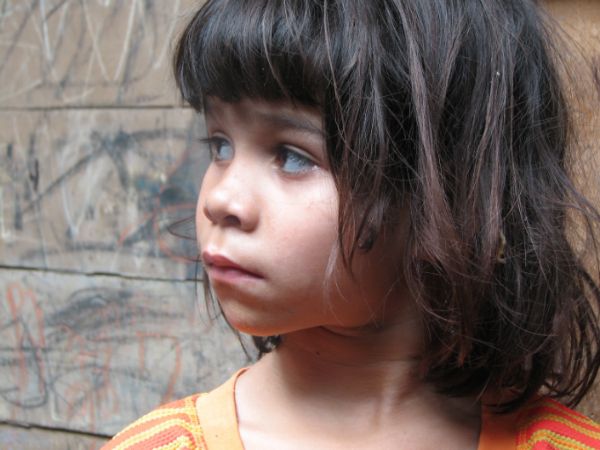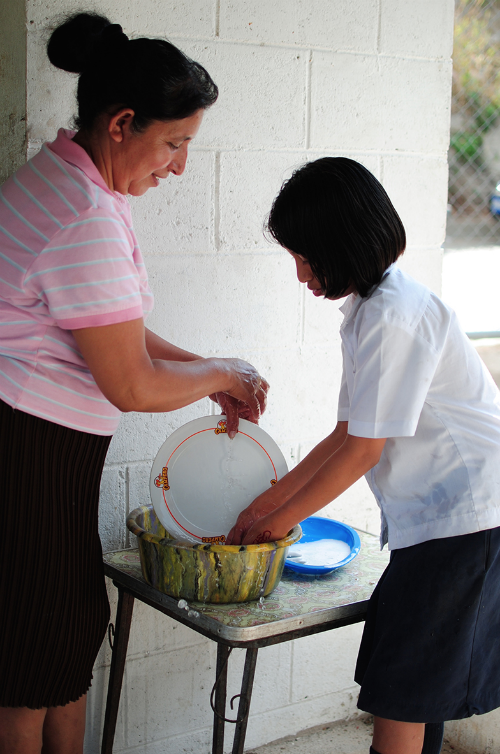'Local church key to change'
Christian charity Viva is aiming to improve the lives of 35,000 vulnerable children in Central America - and the church has a huge role to play

A legacy of war
The Central American country of Nicaragua tends not to make news headlines as it once did a generation ago. Back in the 1980s it was in the midst of its revolution, a war between the US-backed contras and the ruling-Sandinistas that would claim the lives the lives of 30,000 people.
That period of unrest has thankfully given way to economic growth and political stability in recent years. But scars remain and the legacy is being felt today - even by those who didn't live through it.
Thousands of children were orphaned or abandoned during the revolution, and went on to forms gangs for their own protection. These children have grown up using violence as a way of life and are now the parents of the next generation.
It means that stories of domestic abuse, neglect and violence towards children are common, and are largely hidden behind closed doors. And it’s a situation that is mirrored across a number of Central American countries, which have all experienced their own periods of civil war and guerrilla warfare.
Working for change
The Oxford-based charity Viva is one organisation working to turn this tide of violence. Viva operates by partnering with local organisations and has just started to collaborate on a new programme with partner networks in six capital cities across Central America in Costa Rica, El Salvador, Guatemala, Honduras, Nicaragua and Panamá.
The target is to benefit 35,000 vulnerable children in the six countries. Viva’s experience suggests that a group of churches and community organisations, locally focused and united in purpose, can be hugely successful in bringing lasting change for children, and the new programme is building on links already established in the six cities.
Helping to co-ordinate it is Carmen Álvarez, Viva’s Director of Networks and Programmes for Latin America. She is as a medical doctor with a PhD in social sciences and health, MAs in Human Rights and Theology and a BA in Law.
She worked for UNICEF and World Vision before joining Viva in 2002, and has seen much change for the better in the intervening years. She is a passionate advocate for the church playing a key role in improving making society.
‘I believe the church is the answer – it’s what God gives us to help this situation,' she says.
Church leaders have lots of influence, and the church is growing in Central America, Carmen explains. People turn to them in times of trouble. They can help both practically but also in changing people's mindset.
 What's more, many churches want to be "part of the change", and are now working more intentionally with local government and organisations to improve the lives of children and families. Carmen cites La Trinidad Baptist Church in El Salvador as an example.
What's more, many churches want to be "part of the change", and are now working more intentionally with local government and organisations to improve the lives of children and families. Carmen cites La Trinidad Baptist Church in El Salvador as an example.
El Salvador is the world’s second most violent city. Working with Viva, the church is part of a network that is working to get children off the streets. The network reached 6,000 children in total last year.
Reversing the cycle of violence
The new strategy aims to build on this kind of work and is three-fold:
• To work with families to prevent domestic abuse and reduce violence in the community
• To restore children who have suffered through violence and abuse, whether separated or still part of their family
• To change attitudes and behaviours in society. The comprehensive programme will be run through a series of activities, including child protection training for both children and families, public ‘messages of peace’ awareness campaigns, developing genuine alternative opportunities for street and migrant children and forming specialised teams to tackle violence and provide counselling.
‘We are now seeing that people have a more caring attitude towards children, willing to listen to them,' says Carmen. 'By working on parenting skills, finding new ways of disciplining and creating healthier relationships, we can break the cycle of violence.’
She added the UK church has its role to play in effecting this change. ‘We need more believers praying, we need more awareness of the work, we need more money. The family is suffering and we need investment and this is the best way to help us.’
She adds, ‘It’s exciting to be a part of this plan from God – because of this work children can have a much better chance of a better life.'
Last year Viva reached more than a million children in 22 countries through 37 partner networks, which comprise a total of 4,500 churches and community organisations.
The work with vulnerable children in Central America forms the focus of Viva’s Christmas Match Appeal 2015.
Viva is asking its supporters to help to:
• protect children from violent situations at home
• prevent abuse in the future by raising greater awareness amongst adults and children
For more information visit www.viva.org/christmasappeal
Baptist Times, 02/12/2015